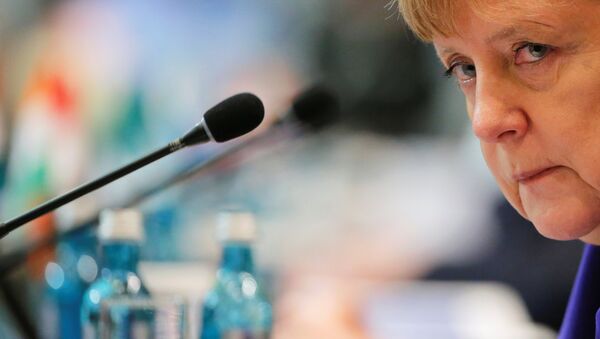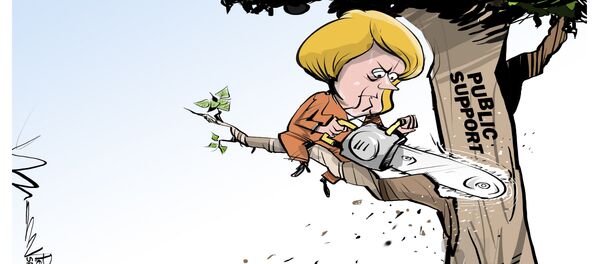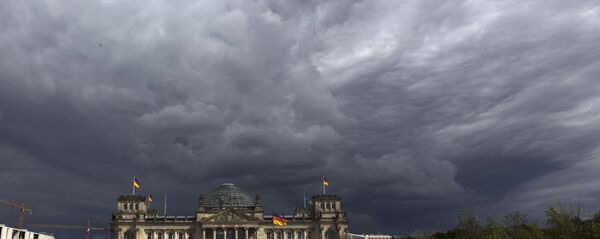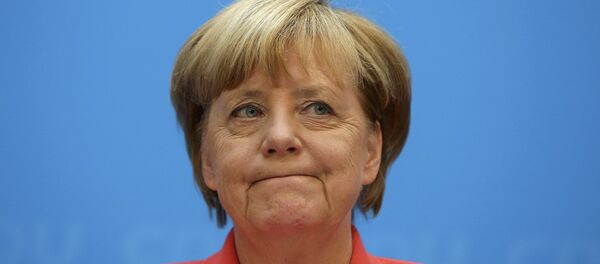Fourth terms rarely turn out well for German chancellors, particularly those from the Christian Democratic Union (CDU), Korte recalled, in an article for Focus Magazine. Konrad Adenauer, post-war West Germany's first chancellor, hung on only for two years after being elected.
"By the end of his sixteenth year in office, German society had gotten seriously tired of Kohl's persona, and no pre-election strategy could stop this trend," Korte noted. "Germans were fed up with his 'grand historical significance', and Gerhard Schroder's spectacular 1998 upset was the result of Kohl's megalomania – his deeming himself to be the indispensable personality of modern history, and that he and no one else could be the one to introduce the euro."
Taking this brief historical primer into account, the political scientist suggested that in some ways, Kohl's legacy bears a resemblance to the situation that Angela Merkel finds herself in today; and it's not that she and her party have no chance of reelection; rather, it's about the limits she would face in pushing through her agenda.
"Public opinion and the media show that Merkel's popularity rating has reached historical lows, and is not likely to rise," Korte recalled. "She faces a growing level of personal isolation, resulting in a loss in her connection with political reality. Not least important is the role played by the question of her physical exhaustion. Even the argument to stay is not new, and goes like this: if the entire Western World were incapacitated (via the election of Le Pen in France, Hofer in Austria, Trump in the USA), Merkel's resignation would be seen as the 'wrong signal'."
Of course, it's still unclear what Merkel will choose, the analyst noted. Her party probably could carve out a majority through a coalition with like-minded parties – including the CDU, the Christian Social Union of Bavaria, the Greens and the Free Democratic Party (FDP).
But Merkel's main personal downside, the political scientist recalled, "is that a majority of the population considers her to be personally responsible for opening the country's borders in the summer of 2015." Therefore, as far as the CDU is concerned, "the price of nominating her for the post of chancellor is high."
"What will the new narrative to legitimize her nomination? Promises that have yet to be fulfilled won't mobilize anyone. And presenting herself as the indispensable 'pilot in the crisis' would convince only a few."
"From the historical perspective, her chancellorship is already almost over. But she can still become a 'heroine in bowing out', becoming the first chancellor who resigns voluntarily," Korte concluded.





